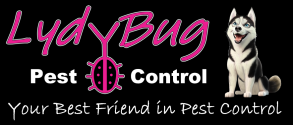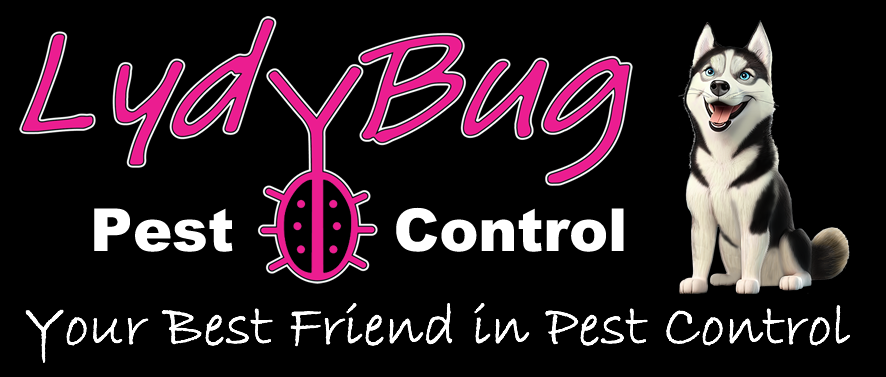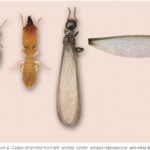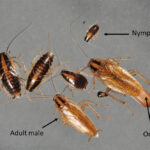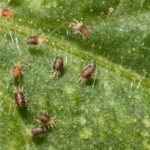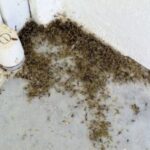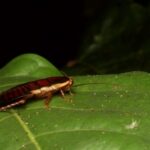The Fascinating World of Aphids: Small Pests with Big Impacts
When we think about garden pests, one tiny creature that might not immediately come to mind is the aphid. Despite their diminutive size, these minuscule insects have a significant impact on plants, ecosystems, and even agriculture. Let’s delve into the world of aphids, exploring their characteristics, behavior, impact, and ways to manage these tiny yet influential creatures.

Understanding Aphids
Aphids belong to the insect order Hemiptera and the family Aphididae, encompassing a diverse group of small insects, typically ranging from 1 to 10 millimeters in length. These creatures come in various colors—green, black, yellow, or red—and have pear-shaped bodies. One distinguishing feature is their antennae, which are notably longer than those of many other insects.
These minuscule creatures often cluster on the undersides of leaves or tender stems, using their specialized mouthparts to feed on the sap of plants. This feeding behavior can lead to detrimental effects on the host plants.
Aphid Life Cycle
The life cycle of an aphid is fascinatingly complex, involving several stages: egg, nymph, and adult. In warm conditions, aphids can reproduce asexually, giving birth to live nymphs without the need for mating. This rapid reproduction allows for exponential population growth, leading to potential infestations in gardens or agricultural fields.
During the colder months or adverse conditions, aphids may produce sexual forms that lay eggs, which then hatch in the following spring, starting the cycle anew. This combination of sexual and asexual reproduction contributes to their adaptability and population resilience.
Impact on Plants and Ecosystems
While aphids might seem insignificant due to their size, their impact on plants and ecosystems can be substantial. Their feeding behavior weakens plants by extracting vital nutrients and causing distorted growth, yellowing of leaves, and even the transmission of certain plant viruses. In agriculture, aphids can significantly reduce crop yields if left unchecked, making them a concern for farmers worldwide.
Interestingly, aphids are not merely pests; they also serve as a vital food source for various predators, including ladybugs, lacewings, parasitic wasps, and certain birds. This dynamic creates a delicate balance within ecosystems, highlighting the interconnectedness of species in nature.

Managing Aphid Infestations
Controlling aphid populations in gardens or agricultural settings often involves a multifaceted approach:
- Natural Predators: Encouraging the presence of aphid predators or introducing beneficial insects can help keep aphid populations in check. Guess who is great for that?? Our beloved LADYBUG!
- Physical Removal: Regularly inspecting plants and manually removing aphids by spraying them off with water or using insecticidal soap can be effective for smaller infestations.
- Companion Planting: Certain plants, such as marigolds or chives, act as natural repellents for aphids when interplanted with susceptible crops.
- Chemical Control: In severe cases, insecticides specifically targeting aphids can be used, but this method should be approached cautiously to minimize harm to beneficial insects, such as our beloved and crucial pollinators, and the environment. Also, if you see them in your edible garden, be sure to avoid all chemical/product treatments.
Conclusion
Aphids, despite their size, play a significant role in the intricate web of life. Understanding their behavior, life cycle, and impact on plants is crucial for effective pest management. Balancing control measures with the preservation of natural predators and ecosystem health is key to maintaining a harmonious environment where these tiny creatures can exist without causing substantial harm.
As gardeners, farmers, and nature enthusiasts, acknowledging the role of aphids—both as pests and as part of a delicate ecosystem—allows us to appreciate the complexity of the natural world and work towards sustainable solutions for managing these tiny yet impactful insects.
So, the next time you spot a cluster of aphids on your plants, take a moment to consider their role in the broader ecosystem and explore holistic approaches to manage their populations while preserving the intricate balance of nature.
If you have any questions or concerns about pests you see in your yard or home, don’t hesitate to reach out to us, we’re only a phone call, text or email away! LydyBug Pest Control is here for you!
